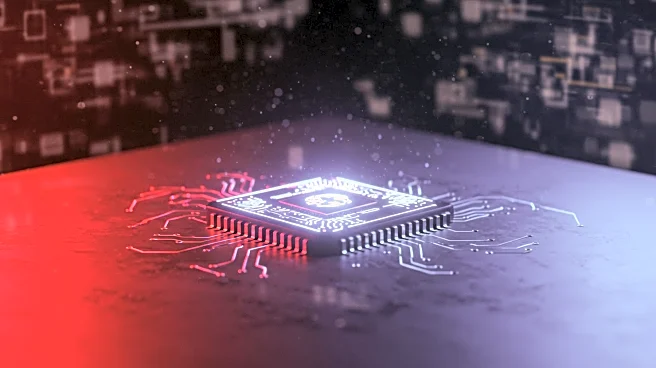What is the story about?
What's Happening?
President Trump has reversed previous U.S. technology restrictions, allowing Nvidia to resume sales of a key AI chip to China. Despite this policy change, Beijing's response has been lukewarm, citing security risks associated with the chip. The decision reflects China's drive for a self-sufficient semiconductor supply chain, although it still relies on American technology. The chip, Nvidia's H20, was initially banned due to its high processing power, but Trump justified the reversal by labeling it 'obsolete'. The move has raised questions about Trump's approach to national security and its implications for U.S.-China relations.
Why It's Important?
The easing of AI chip restrictions highlights the complex dynamics of U.S.-China trade relations and the strategic importance of semiconductor technology. While the decision may benefit U.S. companies like Nvidia, it also underscores the competitive nature of the global AI race. China's cautious response reflects its ambition to develop a robust domestic chip industry, which could impact U.S. tech leadership. The situation poses challenges for policymakers balancing economic interests with national security concerns, influencing future trade negotiations and technology policies.
What's Next?
The U.S. may face pressure to further adjust export controls as China continues to advance its semiconductor capabilities. The decision could lead to increased scrutiny of U.S. technology policies and their impact on global competitiveness. Stakeholders, including tech companies and policymakers, may need to navigate the evolving landscape of international trade and technology standards, potentially affecting future diplomatic and economic strategies.
Beyond the Headlines
The policy reversal raises ethical considerations about the role of technology in national security and the implications of transactional approaches to international relations. The situation may prompt discussions on the balance between innovation and security, influencing long-term shifts in global technology governance.
















